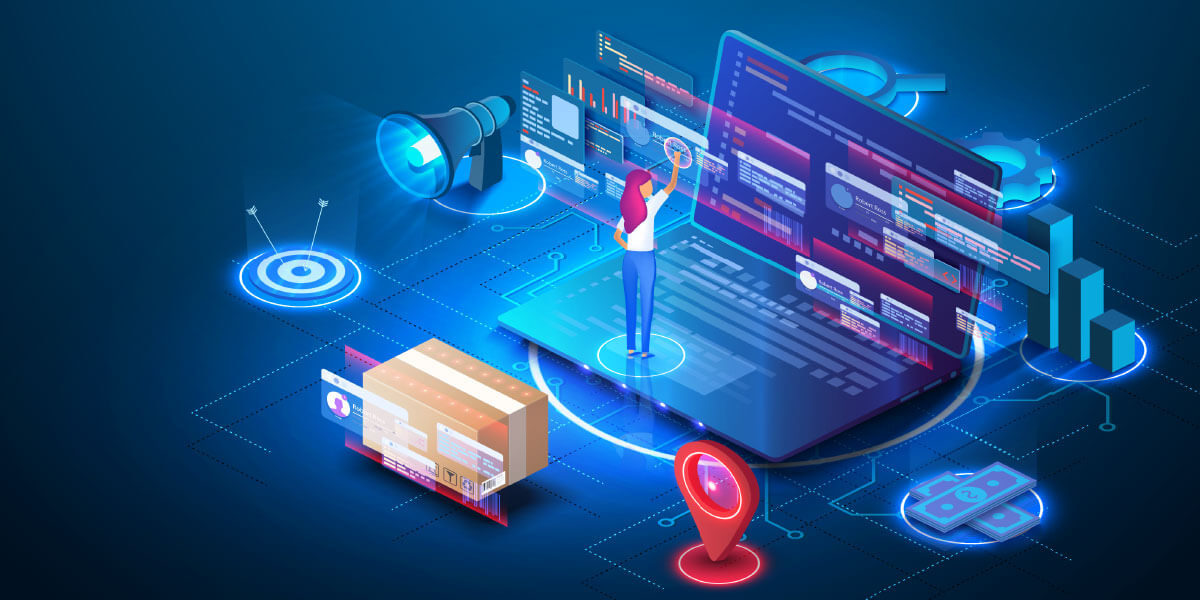In the ever-evolving landscape of commerce, eCommerce has risen to become not just a trend, but a formidable force. It has seamlessly integrated into our lives, redefining the way businesses operate and offering unparalleled benefits compared to traditional brick-and-mortar stores. A key catalyst for this success is the growing utilization of CRM software, enabling efficient customer engagement and interaction.
Diverse eCommerce Models
Similar to conventional businesses, eCommerce operates on distinct models:
- B2C (Business to Customer)
- B2B (Business to Business)
- C2B (Consumer to Business)
- C2C (Consumer to Consumer)
- D2C (Direct to Customer)
While the first four models are established, the Direct to Customer (D2C) model has emerged as a disruptor. Brands embracing this model directly sell to their customers, bypassing intermediaries. In the realm of eCommerce, this approach has gained significant traction.
Empowering Customers through eCommerce
DMSMatrix delves into the multitude of advantages eCommerce offers to customers:
A Vast Array of Choices
eCommerce empowers customers to browse and select products or services from vendors across the globe. Unlike physical stores, the options are virtually limitless. The freedom to explore digital catalogs at leisure, without any external pressure, enhances the shopping experience.
Global Accessibility
Irrespective of their location, customers can shop from any eCommerce platform worldwide without leaving their homes or workplaces. This becomes especially beneficial for those facing constraints like inclement weather, health issues, or complicated financial situations.
Seamless Time and Cost Savings
Online products often come at more affordable prices compared to their counterparts in physical stores. This translates into substantial cost savings for consumers. Additionally, customers are spared from intermediary fees incurred in traditional commerce transactions.
The true power of eCommerce lies in its ability to save time. Purchasing a wide range of products, including groceries, can be accomplished online within minutes. With eCommerce stores operating round the clock, consumers can shop at their convenience, day or night.
Informed Decision Making
eCommerce leverages the Internet as its primary tool. Customers can extensively research products, compare features and prices, and make informed choices without any rush. Reviews, price comparisons, product descriptions, and instructional videos are readily available, enabling customers to make educated decisions.
The Strategic Advantage for Businesses
For businesses, the benefits of eCommerce extend beyond the consumer realm:
Cost-Efficient Operations
Starting a brick-and-mortar business often entails substantial upfront costs, from renting a space to stocking inventory and managing utilities. The cost-effectiveness of eCommerce is evident as it eliminates many of these overheads.
Streamlined Advertising
eCommerce drastically reduces the need for printed catalogs and physical marketing materials. Businesses can effectively showcase their products online, with a creative, dynamic, and cost-efficient approach that attracts customers.
Return on Investment
eCommerce offers a high return on investment (ROI) compared to traditional retail models. The reduced operational costs and enhanced reach contribute to quicker ROI and sustained business growth.
In the swiftly evolving landscape of commerce, eCommerce has become an indispensable tool for both consumers and businesses alike. Its ability to offer a diverse array of choices, global accessibility, time and cost savings, and informed decision-making empowers customers. Simultaneously, businesses leverage eCommerce’s cost efficiency, streamlined advertising, and robust ROI potential to thrive in today’s competitive marketplace. As the digital era continues to reshape commerce, embracing eCommerce emerges as a strategic imperative for success.










